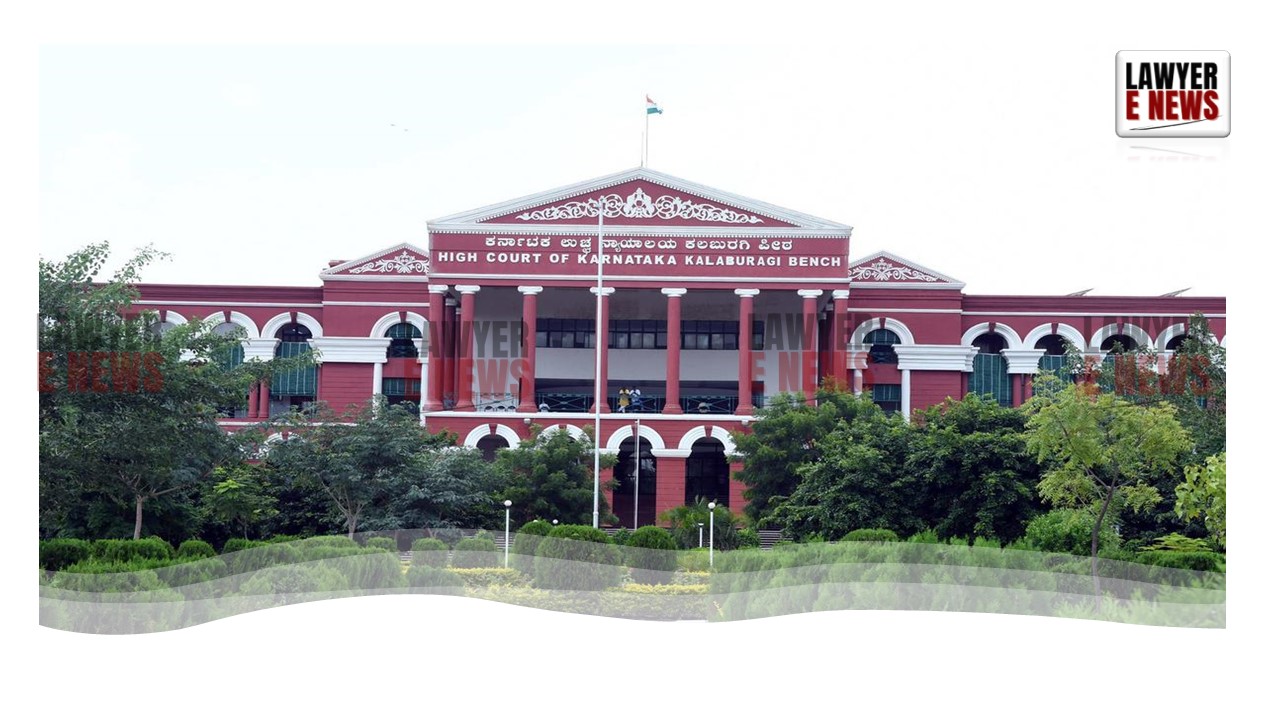-
by Admin
15 February 2026 5:35 AM



"Just Compensation" Must Reflect Future Financial Dependency and Cultural Norms of Parental Care, Karnataka High Court, in a significant ruling, laid down guidelines to determine fair compensation for the death of minor children in motor vehicle accidents. The judgment, delivered by Justice N.S. Sanjay Gowda, addresses the crucial question of "just compensation" under Section 173(1) of the Motor Vehicles Act, 1988, and introduces novel measures to secure parents' financial stability and healthcare needs.
These appeals arose from two separate motor vehicle accidents resulting in the tragic deaths of minor children. The appellants, parents of the deceased minors, challenged the adequacy of compensation awarded by the lower tribunal, which they argued did not adequately address both pecuniary and non-pecuniary losses associated with the death of a minor child. The Court undertook a detailed analysis of the principles governing compensation for minors and sought to establish uniform, inflation-adjusted standards to address the financial and emotional impact on bereaved parents.
The Court addressed multiple critical issues:
Determining Just Compensation: Recognizing the pecuniary and non-pecuniary losses parents suffer upon the death of a child, the Court emphasized that compensation must acknowledge both immediate expenses and long-term dependency considerations.
Future Financial Dependency: Drawing on cultural norms in India, the Court underscored that parents often depend on their children for moral and financial support in old age. Hence, the death of a minor disrupts this expectation of future care, which must be accounted for in compensation.
Uniformity in Transportation-Related Compensation: Highlighting disparities in compensation across different modes of transport, the Court held that the amount paid in motor vehicle accident cases should not differ significantly from compensation awarded in railway or airline accidents.
Key Directives of the Judgment
1. Methodologies for Calculating Compensation
The Court proposed two methodologies for calculating compensation:
First Method: Utilizing inflation-adjusted notional income from the Motor Vehicles Act's Second Schedule, adding 40% for future prospects, and applying an appropriate multiplier based on the age of the child.
Second Method: Aligning compensation with that awarded in railway accidents, adjusted annually for inflation.
Final Calculation Approach: To ensure fairness, the Court recommended averaging the results of these two methods to arrive at a final compensation amount.
2. Investment of Compensation Amount
To safeguard the financial security of parents, the Court mandated that awarded compensation be invested in a cumulative fixed deposit until one of the parents reaches the age of 60. This ensures that the compensation will be available when the parents' dependency typically arises.
The Court allowed parents to petition for early withdrawal under certain circumstances, provided they can demonstrate a genuine need.
3. Health Insurance Provision
Acknowledging the healthcare dependency of elderly parents on their children, the Court ordered insurers to issue a medical insurance policy of Rs. 10 lakhs for the parents of deceased minors. This policy, effective from the age of 60, is designed to cover future medical expenses in recognition of the dependency that would have otherwise been met by the deceased child.
The Insurance Regulatory and Development Authority of India (IRDAI) was directed to ensure compliance by all insurance companies, facilitating the issuance of policies that cover parental medical expenses as an additional component of "just compensation."
4. Non-Pecuniary Losses and Emotional Damages
Considering the profound emotional impact of a child’s death, the Court awarded Rs. 1,00,000 as compensation for the loss of love and affection for each parent, subject to annual inflation adjustments. This component acknowledges the irreplaceable loss suffered by the parents beyond financial terms.
This landmark judgment by the Karnataka High Court introduces a well-rounded approach to compensation in minor accident deaths, focusing not only on immediate financial loss but also on future dependency and healthcare needs. By mandating fixed deposit investments and health insurance provisions, the Court has set a high standard for "just compensation" under the Motor Vehicles Act, ensuring long-term support for parents who lose their children in motor accidents.
Date of Decision: September 12, 2024
Lakshminarayanappa @ Moogappa & Others v. M/s Royal Sundaram Allianz Insurance Co. Ltd. & Another
